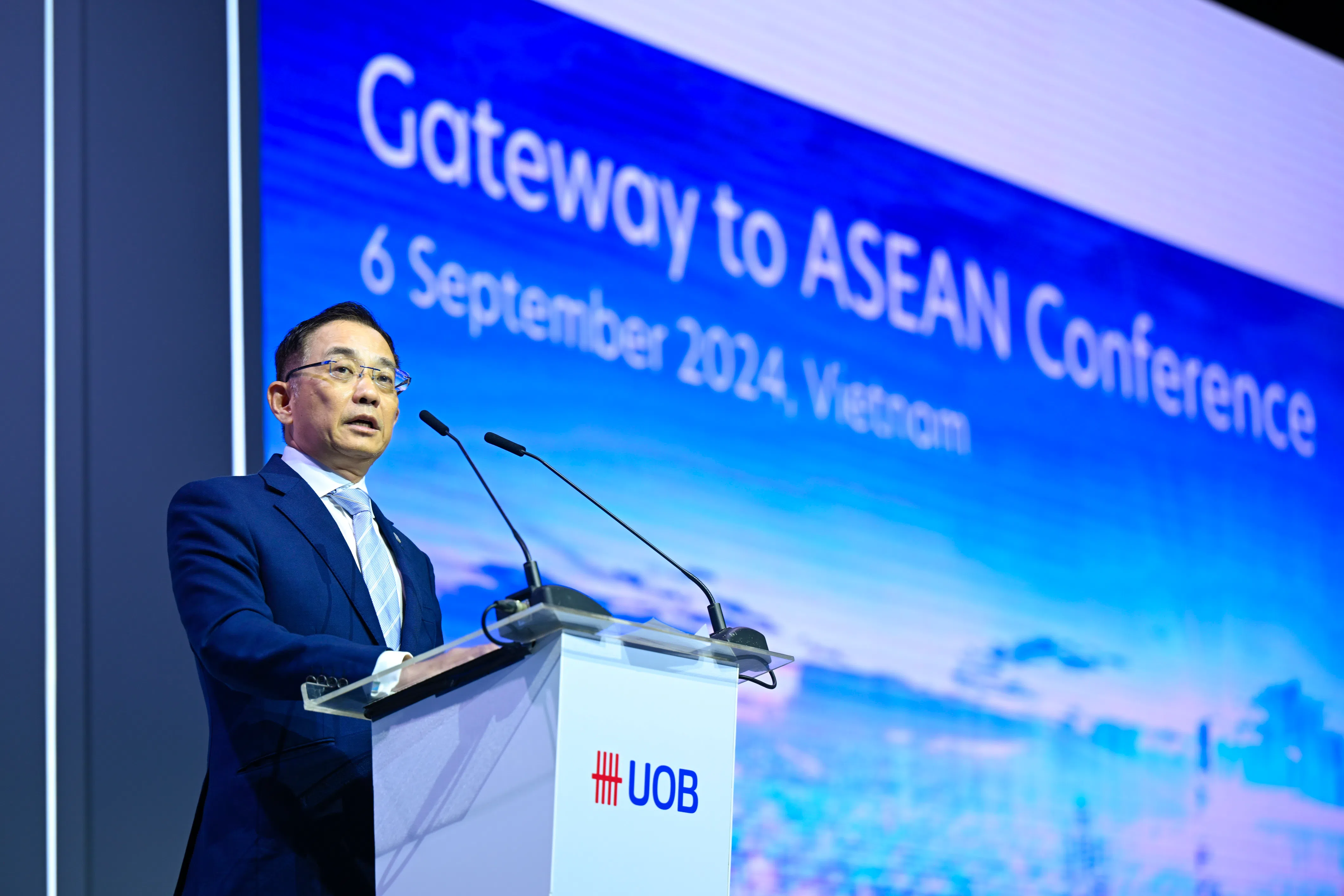[HO CHI MINH CITY] UOB Vietnam is expecting accelerated growth from Greater China clients and increasing interest from US businesses, as Vietnam emerges as a key beneficiary of the shift in global supply chains away from China.
Currently, business customers from Greater China account for about 16 per cent of UOB Vietnam’s client portfolio in the South-east Asian country, said Victor Ngo, chief executive of UOB Vietnam. He was speaking to The Business Times on the sidelines of UOB’s Gateway to Asean Conference held in Ho Chi Minh City on Sep 6.
“We believe that the shift in supply chains will continue and (the number of) our clients from Greater China will grow faster,” he said, referring to the bloc covering Hong Kong, Taiwan, and mainland China.
UOB Vietnam primarily serves firms from Singapore, which account for 44 per cent of its client base. More than half are native Singaporean companies, while the rest are international firms using Singapore as a gateway to regional markets.
Vietnam’s unique advantages lie in its proximity to China, extensive free-trade access, and comprehensive strategic partnerships with multiple large countries, enabling the South-east Asian country to be the “trade corridor” for global companies and manufacturers, Ngo added.
Speaking at the event, Li Fan, managing director of Warburg Pincus Singapore, highlighted Vietnam’s pro-business environment, favourable demographics, and low labour costs – about half that of China – as other key factors contributing to the country’s growing attractiveness.
A NEWSLETTER FOR YOU
Friday, 8.30 am
Asean Business
Business insights centering on South-east Asia’s fast-growing economies.
However, he noted that Vietnam still faces challenges, including infrastructure and power-system limitations, global minimum-tax pressures, and potential geopolitical risks following the upcoming US presidential election in November.
UOB’s Ngo sees significant opportunities to attract more US clients, noting growing interest from American businesses that have been exploring the Vietnam market over the past year.
However, he believes it may take time for them to navigate local regulations and make decisions. He is particularly excited about the potential to meet the financing needs of the data centre industry, especially with reports of Alphabet’s Google considering building a hyperscale data centre in Ho Chi Minh City.
“It’s very important for Vietnam to ensure that Google succeeds here because it will attract other big tech to come in to diversify,” he added.
UOB Vietnam is also in discussion with Ho Chi Minh City authorities to set up a task force to accelerate the country’s infrastructure investments and meet the needs of those high-tech firms.
UOB was the first Singaporean bank to establish a presence in Vietnam in 1993, and now has more than 1,400 employees working across five branches in Ho Chi Minh City and Hanoi.
As an Asean-focused bank, UOB has established a one-stop Foreign Direct Investment (FDI) Advisory unit to help businesses expand regionally. In Vietnam, it has supported around 300 international companies to invest in the country over the past five years, with pledges totalling S$7.3 billion.
Vietnam has maintained a strong FDI profile, with new pledges in the first eight months of 2024 rising 7 per cent year on year to US$20.52 billion, according to the investment ministry. This follows a substantial 32.1 per cent increase in registered FDI in 2023 to US$36.61 billion.
Last year, Singapore was the top source of foreign investment in Vietnam, contributing US$6.8 billion, or 18.6 per cent of the total FDI. Japan, Hong Kong, and South Korea followed, among investors from 111 countries and territories. The majority of the capital was poured into manufacturing.
UOB also completed its acquisition of Citigroup’s consumer banking business in Vietnam last March as part of a larger deal that also included Malaysia, Thailand and Indonesia, which doubled its existing retail customer base in the four markets.






